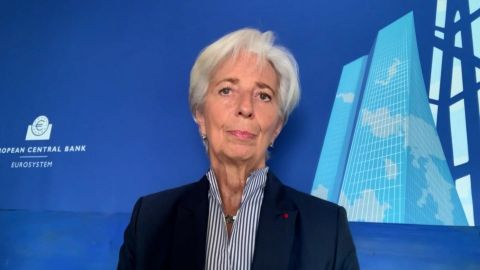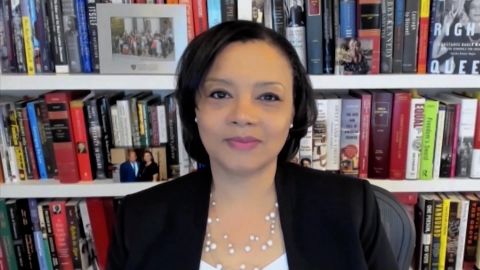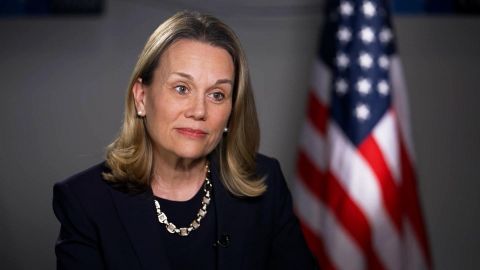Read Transcript EXPAND
CHRISTIANE AMANPOUR: So, a huge economic challenge now because of this war, and mostly because of the rise in energy prices because of Europe’s dependence on Russian energy. What do you make of President Biden and the European Commission president, Ursula von der Leyen, talking today about creating a new joint task force to reduce dependence on Russian energy? How will that affect the economy.
CHRISTINE LAGARDE, PRESIDENT, EUROPEAN CENTRAL BANK: That rapprochement between the United States and Europe on the occasion of the Ukraine terrible war initiated by Russia is a blessing. I think it is incredibly important that the West — let’s call it that way, for want of a better word — is actually united, is joining forces, is together on a defense front, on an energy front, and in its absolute condemnation of what is happening in Ukraine at the moment. So this is really good news. And I’m very pleased that President Biden decided to come over for these meetings.
AMANPOUR: On the energy front, because it is driving your pain and the pain that all of you central bankers have to deal with on behalf of citizens all over the world, how long do you think, realistically, do you foresee, predict energy independence from Russia? And what countries do you look at as stepping into to plug that gap?
LAGARDE: Energy is a critically important factor in relation to prices. Our job as central bankers is to maintain price stability, is to watch inflation, as to make sure that it does not get de-anchored in terms of expectations. So, energy, which plays such a critical part at the moment, needs our full attention. Some countries in Europe are a 100 percent, dependent. Not many. Some are 40 percent dependent. Some are 20 percent dependent on Russian supply of oil or gas or coal. The overall on average is 22 percent. But there is real diversity, if you look at Bulgaria, 100 percent, Germany, depending on whether you talk oil or gas, but roughly 40 percent, less than — a little less than that, Italy a bit less, France and Spain very little. So real diversity, but dependence on Russia is critical not to crack. And I think that we need not only to be united. We need to accelerate the move towards a green energy mix, which had been initiated, but which will be further accelerated. And we need to rely on friends and allies. I think that the alliance between the United States and Europe is important. I think the reaching out to countries like Algeria, great gas producer, to Qatar, huge gas producer as well, to various other Middle East producers, is also going to be in the cards because we want to sever the tie with Russian supply, if only to control prices and to make sure that we are not dependent.
About This Episode EXPAND
The president of the European Central Bank warns the cost of the Ukraine war are rising for Europe and the global economy. NATO ambassador Julianne Smith explains why “time is of the essence” in providing military support to Ukraine. Legal historian Tomiko Brown-Nagin reflects on Ketanji Brown Jackson’s Supreme Court hearings. enélope Cruz discusses her Oscar-nominated film “Parallel Mothers.”
LEARN MORE


